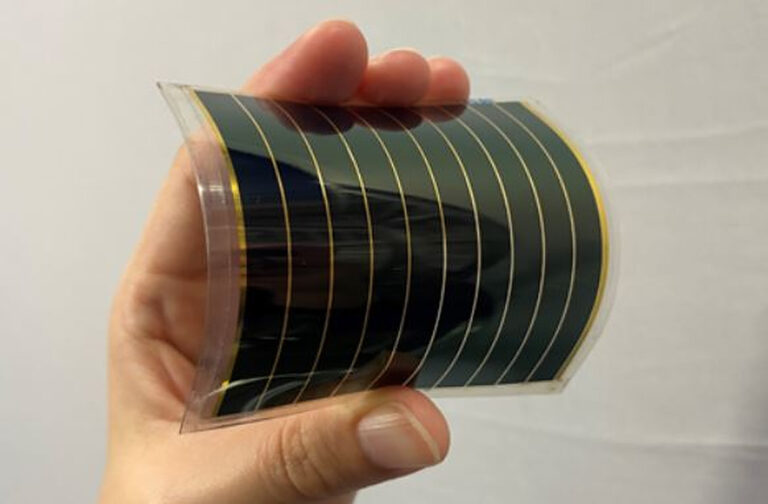EneCoat Technologies, a Japanese solar perovskite developer, has raised JPY5.5 billion ($35 million) from new and existing investors to fund new collaborations based on its low-temperature manufacturing process.
EneCoat Technologies, a PV technology spin-off from Kyoto University, has announced plans to invest in a manufacturing facility and develop industrial collaborations. It will be funded by a JPY5.5 billion venture capital round that the company raised from a group of Japanese institutional and corporate venture capital funds.
EneCoat is pursuing a range of applications for its thin-film perovskite technology, which it manufactures in a proprietary low-temperature deposition process, such as applications requiring high efficiency in low light, as well as outdoor PV applications requiring lightweighting. flexible solar panels.
The modules had an efficiency of 19.4% as of March 2023, as reported by pv magazine in 2023.
The new investors expect that EneCoat’s products will contribute to increasing the number of physical locations where solar energy can be installed. A key part of the strategy is to accelerate “partnerships with leading Japanese companies,” said Naoya Kato, CEO of EneCoat.
The venture capital round was led by Woven Capital, the growth venture unit of Japanese automotive group Toyota, a company with which EneCoat has collaborated in recent vehicle-integrated PV (VIPV) projects.
“EneCoat is well positioned to advance perovskite cell technology as a market alternative to silicon-based cells, offering tremendous strategic value for Japan and practical benefits for a range of applications,” said Michiko Kato, partner at Woven Capital.
Inpex, a Japanese oil and gas exploration company, and Mitsubishi HC Capital, a Japan-based banking and financial services company, are the other two lead investors.
EneCoat aims to produce products that “sell at a fraction of the price of traditional silicon cells when produced at scale thanks to the use of cheap raw materials such as iodine compounds,” according to a press release. A statement from Inpex noted that Japan has water-soluble gas fields where underground brine is used to produce iodine after extracting natural gas.
“We expect our investment will help accelerate EneCoat’s efforts toward mass production as we work with EneCoat to strengthen our supply chain of iodine, a key raw material for perovskite solar cells,” said Hideki Kurimura, managing executive officer and senior of Inpex Corp. deputy director.
The company, founded in 2018 as a spin-off from Professor Atsushi Wakamiya’s research group at Kyoto University’s Institute for Chemical Research, is involved in several research projects. It participates in Japan’s New Energy and Industrial Technology Development Organization (NEDO) program and in a battery project with NGK Insulators, which acquired a stake in the company in 2022.
*Modified on July 23, 2024 to correct punctuation and attribution for EneCoat plans.
This content is copyrighted and may not be reused. If you would like to collaborate with us and reuse some of our content, please contact: editors@pv-magazine.com.


